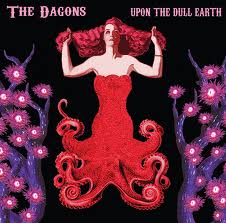Friday, August 31, 2012
PKD and the great historiographers of religion
In a classic article on "Upon the Dull Earth," Umland said something that I like a lot, about how we need to approach PKD through the great historiographers of religion. This little line in a big paper detailing the Dickian Dionysian has been a big inspiration for my project looking at Dick's religious influences. As Erik Davis put it in his recent podcast chat with David Gill, Dick was a comparativist, following and extending the project of Jung, Campbell, and the whole Eranos school. But I'd complicate Umland's argument by noting that we need to be very careful because Dick made his own use of the figures that he read, working from spotty memories of encyclopedia readings (as well as, it must be admitted, some legitimately deep reading for example in Jung). He's taking what he learns from the great comparativists and giving it a Dickian twist. This allows him to do some wild theorizing which we can learn a great deal from, but it must also be understood that while much of this theorizing was serious, at other times he was spinning out esoteric systems as a joke, or for fun. I've had some interesting conversations with Davis+Gill lately about the importance of PKD the bullshitter, in the context of the American tradition of weird conversation. Dick's theories shouldn't necessarily all be taken at face value. Gill has been doing some good ranting lately vs. the notion of Dick as doing "endless theorizing," which I agree isn't the right model. He looks a lot less crazy if you understand that he wasn't totally fooled by everything that he cooked up. There are some core beliefs that are important, and Christianity plays a huge role. There are the powerful religious experiences, which of course are a big deal and color things, but as Gill emphasizes there is a consistent and thoroughgoing skepticism as well. But none of this means that Dick totally lost it. If we keep his healthy sense of irony in mind we can learn a lot more from what he is doing. There's a certain rigor to be admired, and there's certain discomfort associated with understanding the pain that drove him to doing all this thinking. But what he produced is a wonderful theory resource. We see Dick engaging with the state of the art of comparativist study of religion, struggling with some heavy really heavy philosophy stuff, deeply affected by the Nag Hammadi discoveries and developing strange insights into gnosticism and early Christianity. I've been working lately on the early modern, renaissance, and medieval mystics and esoterics that Dick delved into, and we should understand him as engaging with (what he understood as) their theories of religion as well.
Subscribe to:
Post Comments (Atom)

No comments:
Post a Comment